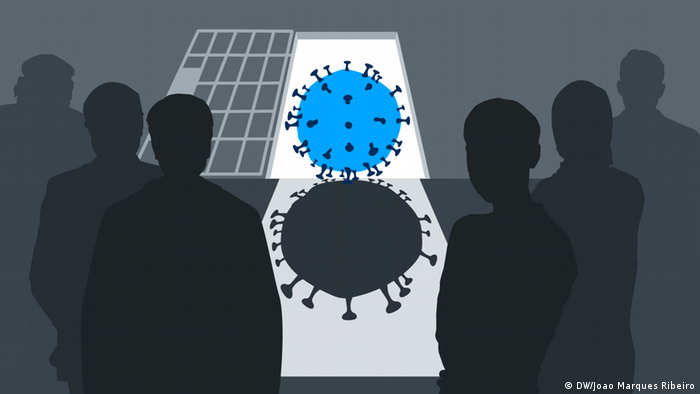New DW-led research provides insights into the control of Covid-19 in European prisons

DW’s latest research released today December 6, “COVID: How Europe’s prisons have fared in the pandemic”, produced in collaboration with 11 newsrooms* in the European Data Journalism Network (EDJNet), gives a comprehensive overview of the ongoing management of Covid-19 in European prisons and the actions required to protect the health and human rights of prisoners and control the spread of the infection.
By gathering data on COVID cases, deaths, and vaccinations in prisons in 32 countries, the research reveals that the number of Covid-19 cases in prisons tends to follow those in the outside world. However, prisons’ responses to control the spread of the virus came at a price: prison visits were discontinued, communal activities suspended, and solitary confinement increased. In particular, the pandemic has exacerbated already existing structural problems, such as overcrowding. In addition, the data indicate that vaccine access in prisons was delayed.
These findings support the need to stop overcrowding, expand the availability of vaccinations to inmates and provide necessary access to in-person visits. It also highlights the need to find alternatives to imprisonment as a critical step towards reducing the use of incarceration.
DW has been a member of the European Data Journalism Network since 2019. Coordinated by Deutsche Welle, the project was led by Kira Schacht and started in June 2021. Together with DW, the 11 partner today newsrooms published their own stories in more than 15 languages and shared DW’s findings.
Kira Schacht, research project lead and Data journalist at DW: “People in prisons are especially vulnerable to COVID-19, and outbreaks in prisons can endanger the world outside as well. But there’s virtually no public information, and very little reporting, on how prisons have fared during the pandemic. This international collaboration is a unique chance to shine a light at this often-ignored topic. Because, as one expert we spoke to said: “If the pandemic has taught us anything, it’s that if we leave one group behind, we make things worse for all of us”.
As regards the project scope, Schacht said: “Since there is no easily accessible data for all European countries, we combined the reporting and language skills of 11 newsrooms throughout Europe. Through a mix of international reports and information requests to local authorities, we built our own database of COVID-19 cases, deaths, vaccinations and measures in prisons. Together with the finished stories, we’ve also published this database, as well as a detailed report of our analysis methodology.”
Adriano Martufi, who researches prison conditions in Europe at Leiden University, said: “There is certainly a problem of underreporting. Health services in prisons are understaffed, underequipped. I’m not even sure whether they have the technical capability to collect and handle such data.”
[Source: DW press release]
